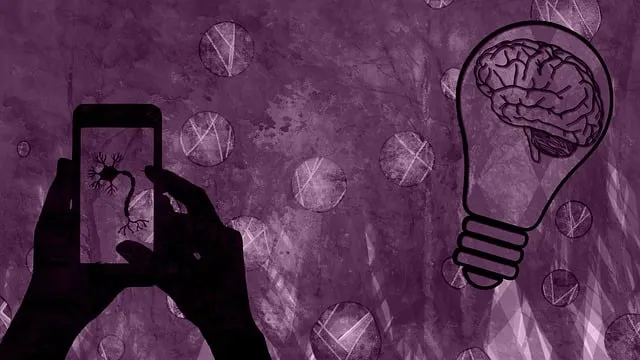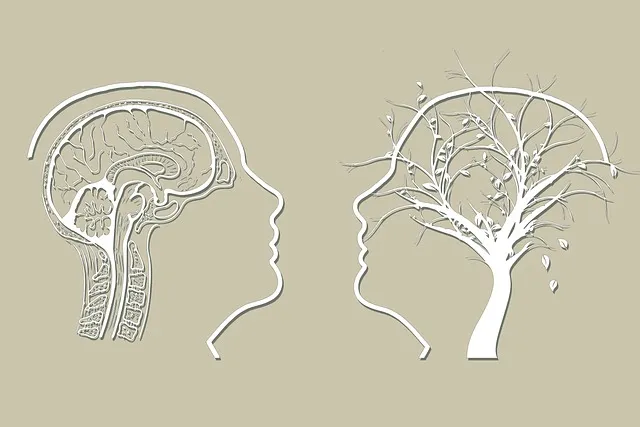The Kaiser Permanente behavioral health center in Lone Tree focuses on accurate mental illness diagnosis, addressing challenges like comorbid conditions and subjective symptoms. They employ advanced technologies, compassionate practices, and comprehensive training to enhance accuracy. Through innovative strategies, workshops, and research advocacy, the center leads in personalized treatment plans, improving patient outcomes while fostering inclusivity and open communication.
Mental illness diagnosis accuracy is a critical aspect of patient care, especially at healthcare giants like Kaiser Permanente. This article explores efforts to enhance diagnosis accuracy at the Kaiser Permanente Lone Tree behavioral health center. We delve into common misconceptions surrounding mental health diagnoses and present innovative strategies to improve tools and techniques. Training and education are examined as key drivers for better accuracy, along with patient-centric approaches that empower individuals for improved outcomes.
- Understanding the Significance of Diagnosis Accuracy at Kaiser Permanente Lone Tree
- Challenges in Mental Health Diagnosis: A Deep Dive into Common Misconceptions
- Innovative Strategies to Enhance Diagnostic Tools and Techniques
- The Role of Training and Education in Improving Accuracy Rates
- Patient-Centric Approaches: Empowering Individuals for Better Outcomes
Understanding the Significance of Diagnosis Accuracy at Kaiser Permanente Lone Tree

At Kaiser Permanente Lone Tree, the quest for enhancing mental illness diagnosis accuracy is paramount. This focus stems from the understanding that an accurate initial assessment can significantly impact patient outcomes and their journey to recovery. The Kaiser Permanente behavioral health center Lone Tree recognizes that correct diagnoses not only enable more effective treatment plans but also reduce the potential for unnecessary medication trials or misdirected therapies.
This effort towards precision in diagnosis is further underscored by the importance of identifying subtle symptoms, especially in cases where mental health issues may coexist with other conditions. Techniques such as Social Skills Training and Confidence Boosting are integral to this process, ensuring that healthcare professionals are equipped to recognize nuances in patient behavior. Additionally, addressing burnout prevention among healthcare providers is crucial, as it maintains the level of attention and sensitivity needed for accurate diagnoses.
Challenges in Mental Health Diagnosis: A Deep Dive into Common Misconceptions

Mental health diagnosis faces significant challenges due to several misconceptions and complexities inherent in human behavior. One of the primary hurdles is the vast spectrum of symptoms that can manifest across various disorders, often leading to misdiagnosis or delayed treatment. For instance, a patient at the Kaiser Permanente behavioral health center Lone Tree might present with anxiety and depression, which could be indicative of multiple conditions, including major depressive disorder, generalized anxiety disorder, or even a co-occurring disorder. This complexity necessitates a nuanced approach that goes beyond surface-level assessments.
Another challenge resides in the subjective nature of mental health experiences. Patients’ perceptions and expressions of their symptoms can vary greatly, making it difficult for healthcare providers to gain a comprehensive understanding. Factors such as cultural background, personal history, and coping mechanisms also play significant roles. Incorporating Compassion Cultivation Practices, Inner Strength Development, and Self-Esteem Improvement initiatives can aid in enhancing diagnosis accuracy by fostering better patient-provider communication and enabling more holistic evaluations.
Innovative Strategies to Enhance Diagnostic Tools and Techniques

The Kaiser Permanente behavioral health center Lone Tree has been at the forefront of innovative strategies to enhance diagnostic tools and techniques. They employ advanced technologies like artificial intelligence (AI) algorithms that analyze patient data, including electronic health records, to identify patterns indicative of mental health conditions. This data-driven approach not only improves accuracy but also allows for personalized treatment plans tailored to individual needs.
In addition, the center leverages Mental Health Policy Analysis and Advocacy to stay updated with the latest research and best practices. They organize workshops and training sessions focused on Mood Management and Burnout Prevention, equipping healthcare professionals with cutting-edge techniques to detect and diagnose mental illnesses more effectively. These efforts collectively contribute to a holistic improvement in diagnostic accuracy, ensuring patients receive timely and appropriate care.
The Role of Training and Education in Improving Accuracy Rates

Improving mental illness diagnosis accuracy at Kaiser Permanente behavioral health center Lone Tree requires a multifaceted approach, and training is a cornerstone strategy. The center prioritizes comprehensive education for its professionals to enhance diagnostic capabilities. This includes specialized workshops focused on emerging research and best practices in mental health assessment. By staying updated with the latest evidence-based methods, healthcare providers can make more precise diagnoses, ensuring personalized treatment plans that address specific needs.
One effective method integrated into their training is Compassion Cultivation Practices, which foster a non-judgmental and empathetic mindset. Additionally, Mental Illness Stigma Reduction Efforts play a pivotal role in creating an inclusive environment, encouraging open conversations about mental health challenges. Moreover, Resilience Building initiatives empower both patients and providers to navigate difficult situations, leading to improved outcomes and enhanced diagnostic accuracy.
Patient-Centric Approaches: Empowering Individuals for Better Outcomes

At the Kaiser Permanente behavioral health center Lone Tree, patient-centric approaches are revolutionizing mental illness diagnosis and treatment. By empowering individuals to actively participate in their care, the center incorporates Mind Over Matter principles to enhance mental wellness. This holistic strategy involves educating patients about their conditions, teaching coping mechanisms, and fostering open communication with healthcare providers.
Through these methods, patients gain a deeper understanding of their mental health journeys, enabling them to make informed decisions. The center’s focus on patient-provider collaboration improves cultural competency among healthcare staff, ensuring that diverse individuals receive tailored support. This personalized approach not only boosts diagnosis accuracy but also fosters better outcomes and improved quality of life for those seeking help at the Kaiser Permanente behavioral health center Lone Tree.
At the Kaiser Permanente behavioral health center Lone Tree, improving diagnosis accuracy is a multifaceted approach that combines advanced tools, enhanced training, and patient-centric care. By addressing common misconceptions and implementing innovative strategies, we strive to ensure more accurate and timely mental health diagnoses. This comprehensive effort not only improves individual treatment outcomes but also fosters a more effective and compassionate healthcare system for all.






